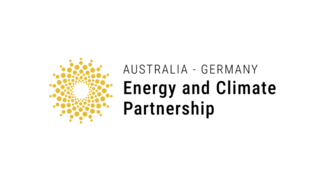Australian e-SAF for the German Aviation Sector. Bilateral opportunities for synthetic aviation fuel for Germany and Australia
Keywords: e-SAF, sustainable aviation fuel, hydrogen, Australia, aviation, e-fuels, CCUS,decarbonisation | Study published: July 2025
The aviation sectors in Australia and Germany are among the largest globally, making both countries’ net zero targets highly significant. E-SAF produced with green hydrogen and sustainable carbon feedstocks offers a particularly attractive decarbonization solution for the aviation industry, as its feedstocks are nearly unlimited and its usage potentially carbon neutral. Australia has tremendous potential as an e-SAF producer and exporter, while Europe and Germany are important markets, due to existing, ambitious e-SAF quotas. This study outlines e-SAF production pathways, existing regulation in Australia, the EU, and Germany, the willingness-to-pay in the EU/ Germany, the potential for an Australian supply chain, and recommendations to overcome current hurdles to e-SAF trade between these countries.
Germany’s growing demand for sustainable aviation fuels, driven by ambitious EU quotas, aligns well with Australia’s abundant renewable energy resources and its potential to become a global leader in hydrogen and e-SAF production.

- Even if the three most promising e-SAF projects in the EU reach FID in 2025, there will be a shortfall of 332,000 tonnes to reach the 2030 EU quota
- To facilitate the required imports, several measures will be required including providing regulatory certainty regarding ReFuelEU and RFNBO criteria, signaling the need for imports, providing certainty for AUS projects using biogenic and industry point sources, among others

